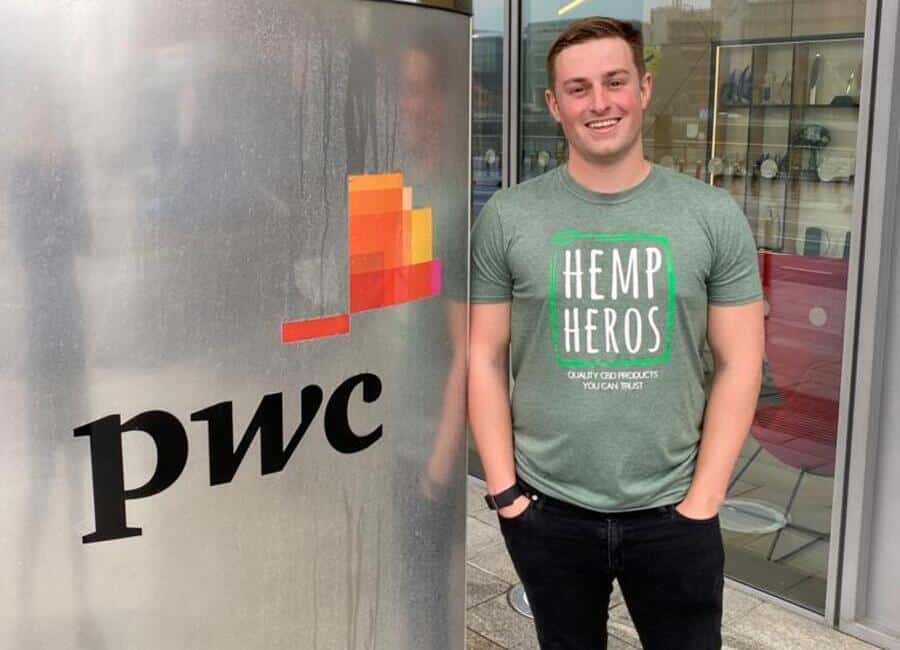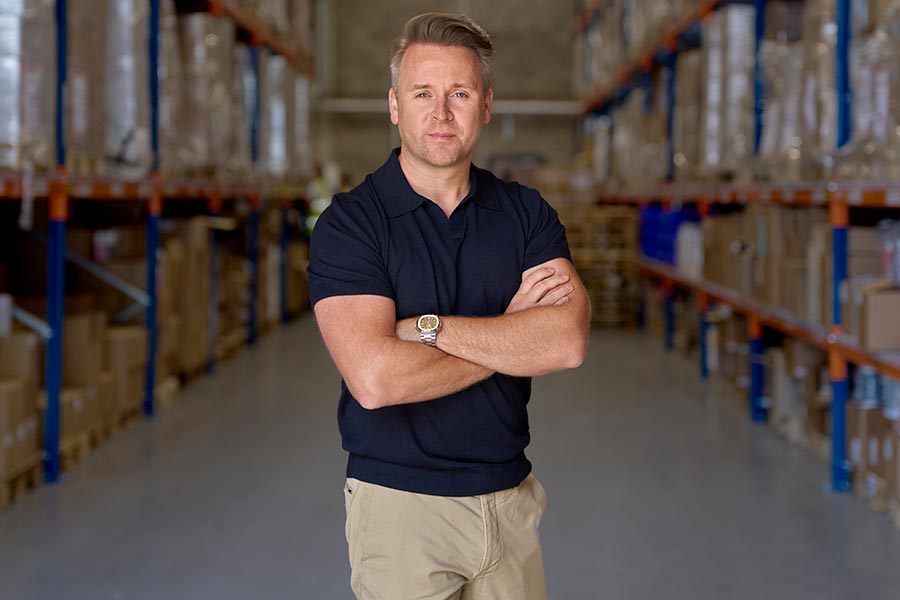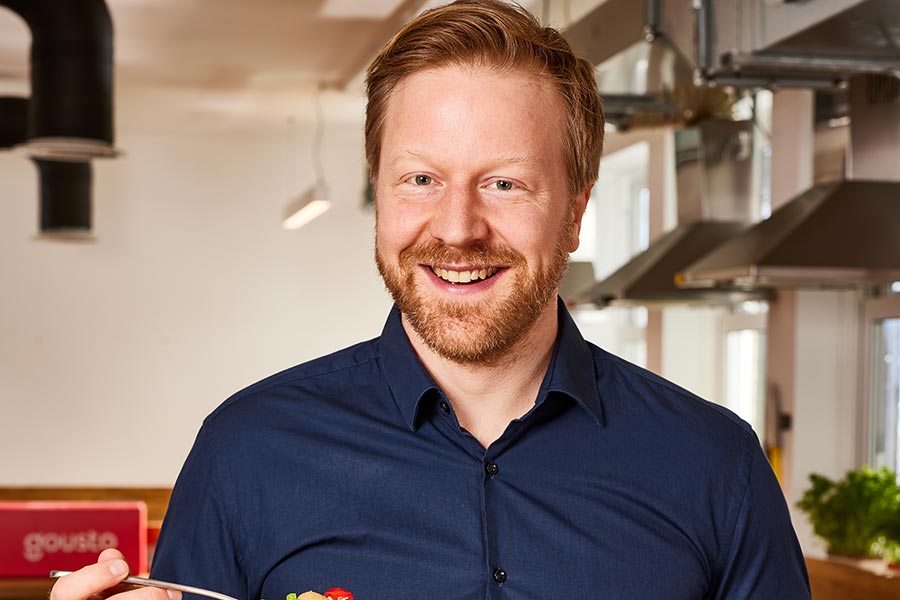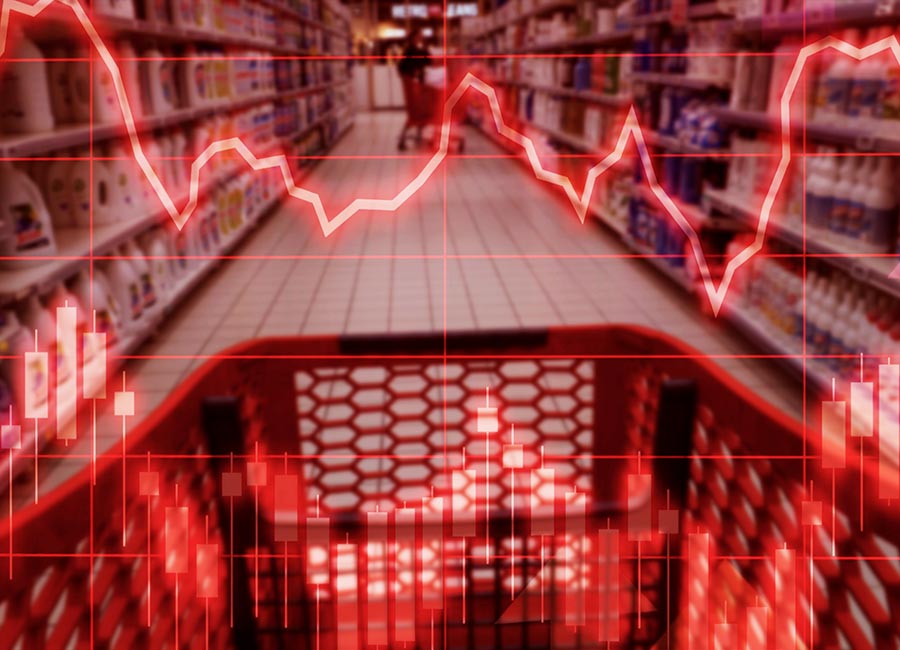In May 2010, so-called head shops that sprung up following the crash were effectively shut down in response to a spike in drug-related hospital admissions. More than a decade later in November 2021, a Dublin man became the first person in Ireland to be prescribed medicinal cannabis following a long, drawn-out campaign by advocates.
In the intervening decade, cannabidiol (CBD) oil, which is derived from cannabidiol, an active ingredient found in both cannabis and hemp, has become a widely-used supplement for pain relief, muscle inflammation and sleep assistance.
According to the Food Safety Authority of Ireland (FSAI), which regulates CBD as a food supplement, there is no reliable data about the size of the CBD market, but industry group the Centre for Medicinal Cannabis expect it to reach almost £1bn in the UK by 2025, while Grand View Research estimated the global market to be worth $5.2bn in 2021.
Hemp Heros manufactures and distributes CBD oil products made for humans and pets and markets them as health and well-being items, which might indicate how much cultural attitudes towards cannabis have changed in recent years.
The company extracts its cannabidiol from hemp, which like cannabis is a member of the cannabaceae family of plants but, unlike cannabis, only has trace elements of psychoactive tetrahydrocannabinol (THC) – around 0.2%.
Although they look similar – hemp plants could be easily confused for tall cannabis plants, standing six or seven feet – company founder David Hartigan stresses that cannabis and hemp are not the same, and the conflation of the two plants has been a thorn in the side of the CBD industry.
Enterprise Ireland, he says, won’t authorise any funding for Hemp Heros, having deemed it a “cannabis-based business,” and members of the public have in the past commented that they think the company sells drugs or asked him if its products will get them high.
“It doesn’t get you high,” he says. “It’s not for that purpose. It’s all about health, wellness and lifestyle, and none of our products are made to be intoxicating in the slightest, but perceptions are definitely changing."
Hartigan, who recently left PwC after six-and-a-half years, was turned onto CBD oil when managing mixed martial arts (MMA) fighters, who used it for recovery after training and fights.
He spent nine months researching CBD oil, visiting hemp farms and learning different extraction methods, before setting up the company in 2019. To date he has invested €100,000 in savings and credit union loans into the business while receiving no external funding,
Like close to 95% of CBD product sellers, Hemp Heros started by selling white label products bought from one of the c. 20 major wholesalers that dominate the market and have the resources and scale to undertake CBD extraction, which can cost €1-2m to set up.
Companies can buy 20kg bag of CBD isolate, the lowest grade of the product, mix it with a carrier oil and sell it off at an extortionate markup. Hartigan has opted to develop a patent-pending cold press technique that is more expensive, but which he believes vastly improves the quality while giving the company greater control of its product.
“I always kind of had this vision I suppose of like bringing everything in house, like we will kind of be able to have full control over our supply chain,” he says.
“Because as much as it's great having someone manufacture for you, obviously, it means you're just another cog in the machine, you don't really have anything that's unique. And so we wanted to really, I suppose, take control of that and be able to do everything from seed to shelf.”
The company now sources hemp from eight to 10 farms and sells 20 products at an estimated 30% margin, including its standard 30ml oil dropper, muscle balm, dog butter and horse spray, all produced at its facility in Co Wicklow.
Anecdotally, Hartigan says, Hemp Heros has seen fantastic results from customers, which the company is now trying to back up with clinical research from the UCD veterinary hospital into the products’ effectiveness in providing pain and anxiety relief to pets and treating laminitis in horses.
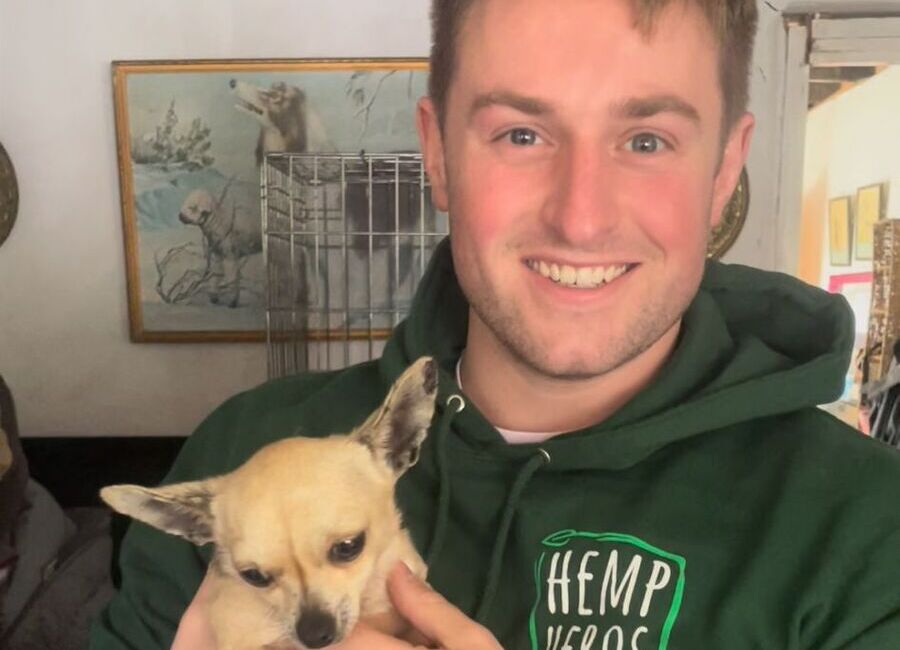
Accounts show Hemp Heros made a €15,000 loss in 2020, and Hartigan says the company is on track to become profitable this year, thanks in part to reduced overheads from in-house production. Hartigan estimates annual turnover of €100,000 for the firm’s first three years of operations, and expects sales to top €150,000 in 2022. He’s targeting €500,000 in sales next year.
While 80% of sales are made online, Hemp Heros stock is now sold in 60 pet shops nationwide and Hartigan is actively seeking more retail partners in health shops, vets and pharmacies.
He is one of four employees at the company, and is primarily involved with business development, while the other three staff work at the production site. He will seek to add employees to handle marketing, social media and expand production if he can manage to land some big accounts.
Hartigan is also in full ownership of the business after buying out his business partner and former UFC fighter John Phillips, who was one of the three MMA fighters he managed while at PwC, which goes to show the entrepreneurial spirit he says he has always had.
The Crumlin man comes from a family of tradespeople and started his own home brew business with a kit he bought online at 17. After doing poorly on his Leaving Cert, he studied business planning at IT Tallaght, now part of Technological University Dublin, during which time he worked security at nightclubs and licensed events and also moonlighted as a private investigator.
He later successfully applied for one of the 12 annual places on the INSPIRE scholarship, which helped to fund a Master’s degree at UCD’s Michael Smurfit Graduate Business School. Due to his underperformance in secondary school, Hartigan had to apply three times before being accepted by PwC, but he was offered places by the Big Four firm on both its summer internship and graduate programmes.
There, he climbed the ranks, earning promotions year-on-year while working on growing Hemp Heros during his final three years with the company. He was promoted to manager level too before leaving what he describes as a “fantastic company” earlier this year, and departing on good terms with managing partner Fergal O’Rourke.
At a time of housing crisis and economic uncertainty, it obviously wasn’t the obvious decision to leave an €80,000-a-year job to go full-time with his start-up, but Hartigan has ambitions to turn Hemp Heros into a “Kerrygold for CBD.”
“I think it can become a global giant, and essentially be something like a Kerrygold for the world of CBD,” he states, confidently. “We want to be that kind of leader and an Irish brand that has a global footprint.”
At present, 80% of Hemp Hero sales are made in Ireland, with 15% in the UK, and split 70:30 between human and animal products, but the company has made sales across Europe and in India. The UK and major European countries such as Germany, Italy and Spain will be the focus in the medium term before the company turns its attention to the US, the largest market for CBD.
Down the line, Hartigan might seek outside investment – he recently had a meeting with Enterprise Ireland about changing their policies on hemp-related businesses – but for now he’s keen not to become another “flash in the pan” that raises eye-catching sums of money only to disappear quickly.
“I want Hemp Heros to be here in 10 years’ time,” he says. “We set the company up in the correct way, so that the foundations are right, and the values that we had, where it was quality first, giving people something that is true value for money, were key.
“We’re in a much stronger position now that I’m full-time with the business. The business is growing, and we have the manufacturing under control. It's more so actually just breaking into new markets for us.
“We're looking for partners in markets where we can get that retail presence and really start to scale because we have everything else in place.”
Photo: David Hartigan.


